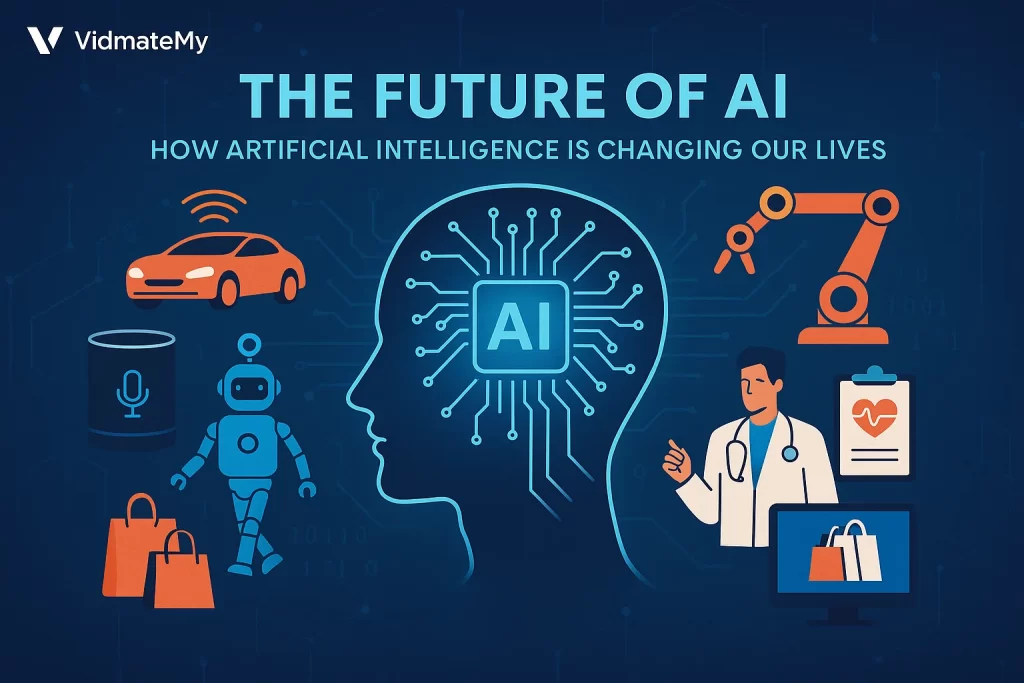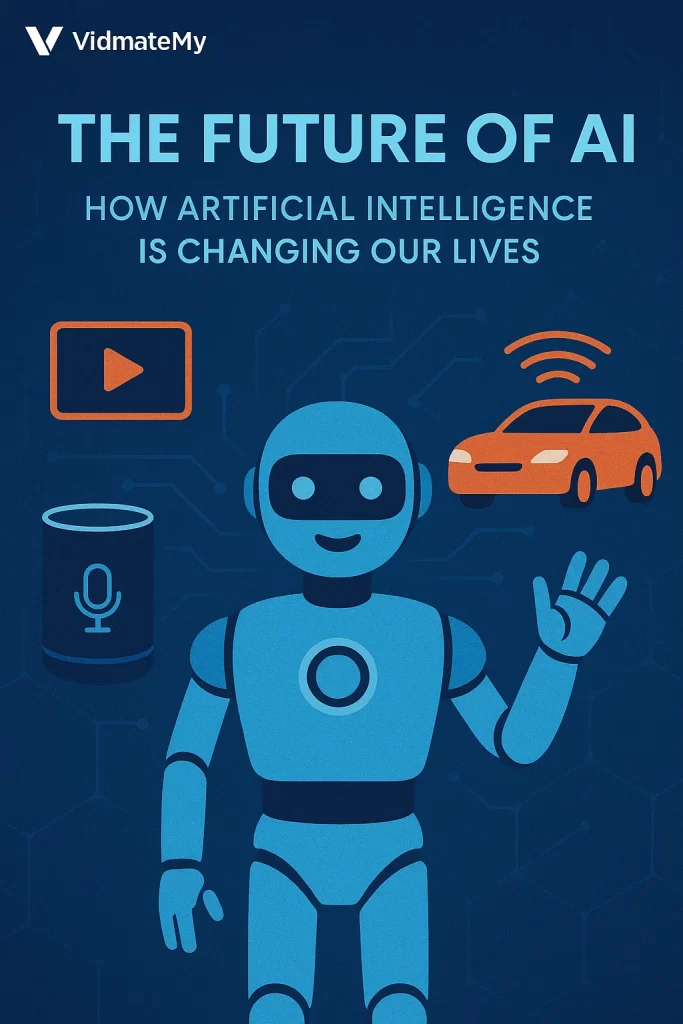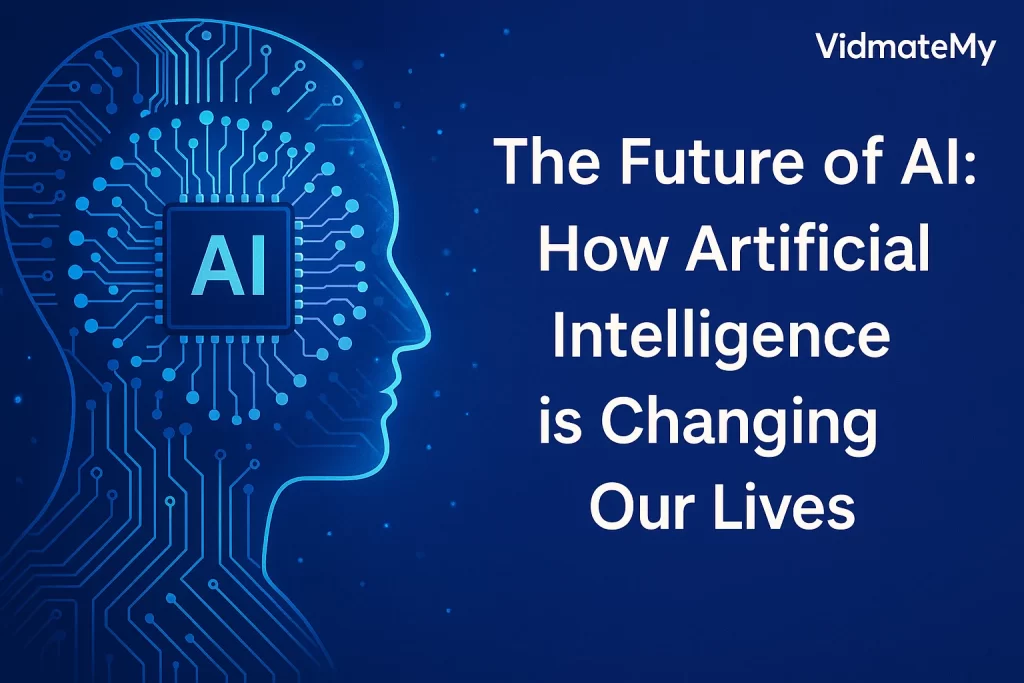
Artificial Intelligence (AI) is no longer a concept from science fiction. It’s real, evolving fast, and rapidly transforming the way we live, work, and connect. From smart assistants to autonomous cars, AI is reshaping everything around us. In this blog post, we’ll explore how AI is impacting our day-to-day life, what the future holds, and how we can adapt to thrive in this evolving digital era.
What is Artificial Intelligence?
At its core, Artificial Intelligence refers to machines and systems that can simulate human intelligence. This includes problem-solving, learning, reasoning, perception, and even language understanding. AI systems are trained using large amounts of data and algorithms to make decisions with minimal human intervention.
Some popular forms of AI include:
- Machine Learning (ML): Systems that learn from data patterns.
- Natural Language Processing (NLP): Technology that enables machines to understand human language.
- Computer Vision: The ability of machines to interpret and process visual data.
- Robotic Process Automation (RPA): Automating repetitive tasks in businesses.
How AI is Impacting Our Daily Lives
AI is no longer just a back-end tool. It’s in your pocket, your car, your office, and even your home.
1. Personal Assistants
Whether it’s Siri, Alexa, or Google Assistant, AI-driven voice assistants help us manage calendars, play music, and even control smart home devices.
2. Healthcare Revolution
AI is revolutionizing diagnostics and patient care. Algorithms are now capable of detecting diseases like cancer and diabetes earlier and more accurately than traditional methods. AI-driven chatbots are helping patients get preliminary consultations.
3. Finance & Business
AI plays a massive role in fraud detection, customer service automation, and even in managing investments. Tools like robo-advisors use AI to create personalized financial plans.
4. Smart Homes & IoT
From adjusting your room temperature to switching off lights when not needed, AI-powered smart home systems are redefining comfort and energy efficiency.

5. Entertainment & Content Curation
Streaming platforms like Netflix and Spotify use AI to suggest content based on your behavior. This makes user experience more personalized and engaging.
6. E-commerce & Customer Service
AI-driven chatbots answer queries instantly, while recommendation engines boost sales by suggesting products users are likely to purchase.
The Role of AI in Career and Education
- Online Learning Platforms: Adaptive learning systems powered by AI tailor course material to individual student needs.
- Skill Development: AI helps job seekers with resume writing, job matching, and even interview preparation.
- Automation vs Employment: While AI automates routine jobs, it also opens up new career paths in AI development, data science, cybersecurity, and more.
Challenges and Ethical Concerns
AI isn’t all rainbows and sunshine. Here are some challenges the world needs to tackle:
- Bias in AI: AI systems learn from data, and if that data is biased, the outcomes will be too. This raises fairness and accountability concerns.
- Data Privacy: AI needs data to learn, but how much data is too much? Balancing AI’s need for data with user privacy is crucial.
- Job Displacement: Automation may threaten some job sectors, leading to unemployment if adequate re-skilling isn’t provided.
- AI in Warfare: Autonomous weapons and surveillance tools can be dangerous if misused.
The Future: Where is AI Headed?
1. Hyper-Personalization
From education to healthcare, services will become even more tailored to individual needs.
2. Autonomous Systems
We’ll see more autonomous vehicles, drones, and delivery robots, making daily life more efficient.
3. AI + Augmented Reality (AR)
AR and AI combined will redefine how we shop, work, and learn in immersive environments.
4. AI in Mental Health
Chatbots and virtual therapists may become the norm, offering support and early diagnosis.
5. General AI (AGI)
We are moving toward a future where AI systems may be capable of understanding and performing any intellectual task that a human can do. That’s still far away, but researchers are working on it.

How to Prepare for an AI-Driven World
- Stay Informed: Keep up with the latest trends in AI and technology.
- Learn AI Skills: Even basic knowledge of AI, Python, or data analysis can boost your career prospects.
- Adaptability: Be open to change and willing to learn new skills.
- Focus on Human Skills: Creativity, emotional intelligence, and ethical reasoning are still uniquely human.
Conclusion
Artificial Intelligence is not a distant dream—it’s the present and the future. It’s transforming industries, enhancing user experiences, and redefining how we live. While it comes with its own set of challenges, the potential benefits are enormous. Embracing AI with responsibility, curiosity, and readiness to adapt is the key to thriving in this new digital age.
If you found this post helpful, you might also enjoy reading our beginner’s guide on SEO, explore how to Earn Money Online, or learn Resume Writing Tips to stay competitive in today’s AI-influenced job market.
Thanks for being a part of the VidmateMy community — where learning never stops. 🚀
Leave a Reply